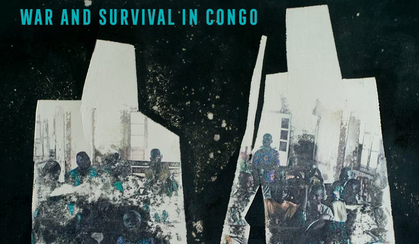
Reflect
Geneva, this is Goma. Do you read me? Over.
Monday morning, the first messages arrive via WhatsApp:
Good morning, Claudia.
The bombs are falling again. There are gunshots everywhere around us. The M23 has taken Goma. Their troops have just marched past our house.
We are hiding under the bed.
A series of graphic videos follow: uniformed men in movement, injured bodies, bloody limbs. My friend’s children are safe (for now). They have stockpiled enough food and water (for a while). In the following days, we continue our exchange: his updates from the frontline, my (futile) words of solidarity. Then silence. Connection lost.
Looking deeply and listening softly
Being changed forever can happen unexpectedly.
Rwanda, 27 June 2009: My task at the Mutobo demobilization centre that day was complex, but (I had expected) achievable. I was to interview former members of a rebel force that had recently committed a series of horrific atrocities in eastern Congo, part of a United Nations investigation that would contribute to determining the chain of command, and thus responsibility, for war crimes. I had been doing this work for years and felt confident with the backing of an arsenal of international human rights treaties and the bastion of Security Council resolutions that mandated my investigations.
Courage (denoting the heart)
As I climbed the small flight of stairs on the Nice-Ventimiglia regional train, the rhythms of Naija’s summer hits wafted down. At the top, a young man who I would come to know as Abeo danced to Joeboy’s ‘Baby’. The train began to move along the glittering coastline, and as the compartment emptied of its Sunday afternoon beachgoers, Abeo strolled down the aisle in search of anything useful but forgotten or unwanted. Eventually he stopped next to me, and asked with disarming grace: ‘Signora, mi dai un po’ d’acqua?
Where does it hurt?
Ruby Sales, civil rights-era luminary and leading theologian, once asked a young sex worker who was battling out her daily survival on the margins of segregation-era America: ‘Where does it hurt?’. Into gently listening ears, the young woman’s story flooded forth: a personal chronicle of family abuse and intimate violation, transposed upon the history of entrenched social injustice. These co-occurring hurts lived in the same territory of pain.
Where is the pain, and what does it tell us?



